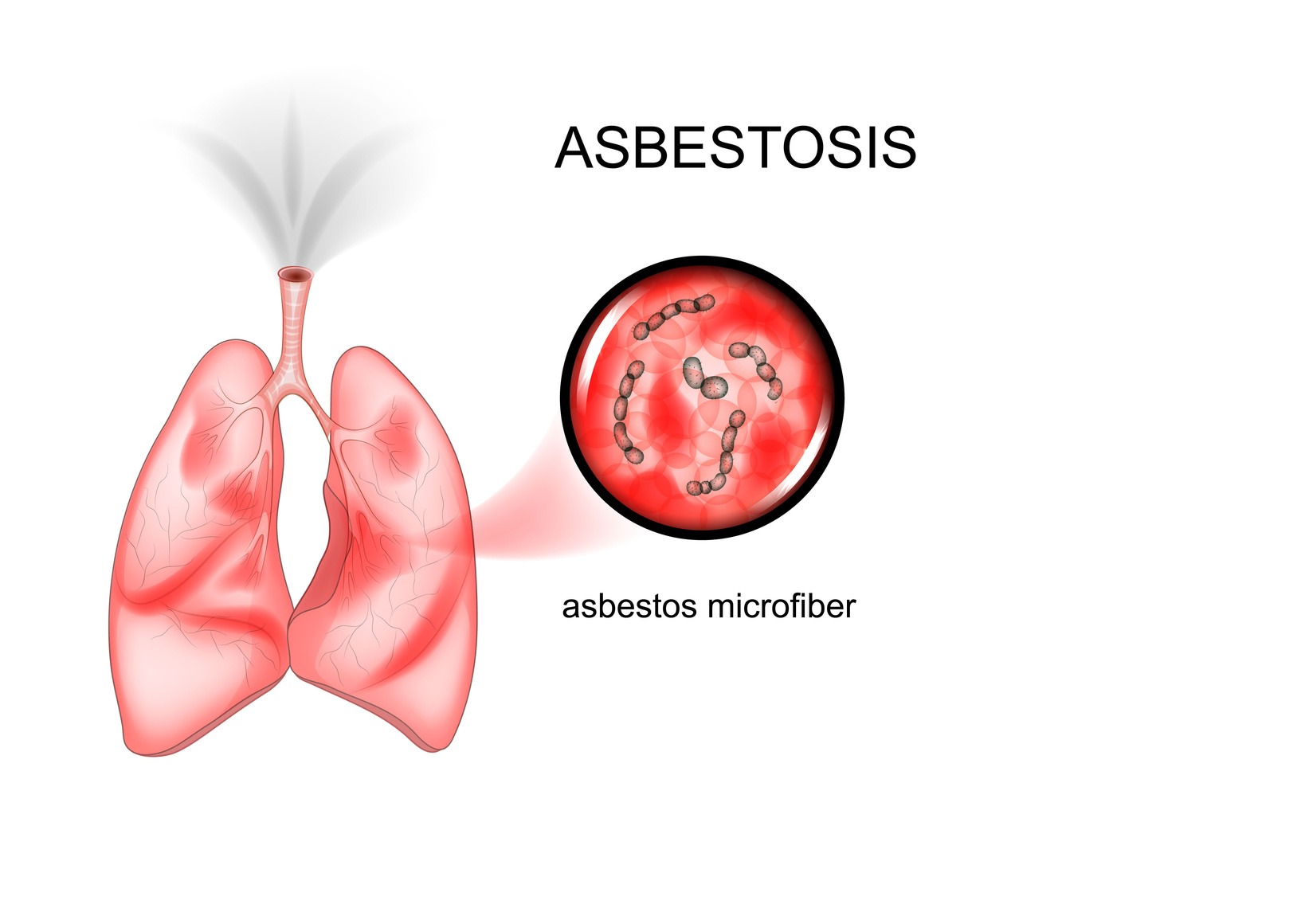 Understand what asbestosis is, what causes it, and how your doctor may be liable for malpractice if he or she did not correctly diagnose it.
Understand what asbestosis is, what causes it, and how your doctor may be liable for malpractice if he or she did not correctly diagnose it.
Asbestosis is a lung disease caused by inhaling asbestos fibers. Asbestos is a mineral that was once common in the construction of houses, apartments, and office buildings. It was a feature of insulation and of floor and ceiling tiles. Before its dangers were well-known, workers, particularly in the building and construction trades, frequently came into contact with asbestos on the job. Many of these workers later developed asbestosis and other lung conditions.
Asbestosis is dangerous because it can lead to pulmonary fibrosis (the scarring of lung tissue) and mesothelioma (a deadly lung cancer associated with asbestos exposure). It relates to medical malpractice in that your doctor has a professional duty to make an accurate and timely diagnosis when you present symptoms of asbestosis. An erroneous or delayed diagnosis can cause you to experience complications you otherwise could have avoided.
The Symptoms of Asbestosis
If you visited your doctor complaining of certain symptoms, your doctor should have recognized asbestosis as a possibility, especially if you worked in the construction trade before modern regulations limited workers’ exposure to the substance. A diligent doctor would know this information, as he or she would have taken your complete history and carefully reviewed it.
Here are the most common symptoms of asbestosis:
- Shortness of breath
- Persistent, dry cough
- Loss of appetite
- Weight loss
- Widening of the fingertips or toes (“clubbing”)
- Chest tightness or pain
If you presented one or more of these symptoms to your doctor, and he or she did not test for asbestosis despite your history of coming into contact with asbestos, this failure may constitute negligence.
Risk Factors for Developing Asbestosis
Even before you described your symptoms to your doctor, he or she should have asked about your medical and work history. This information can provide insight into the origins of a patient’s maladies.
In the case of asbestosis, the risk factors involve occupations. If your work history includes any of the following roles, your doctor should have been vigilant about screening for asbestosis:
- Asbestos mining
- Asbestos removal
- Aircraft and auto mechanic
- Boiler operation
- Construction work
- Electrical work
- Railroad work
- Shipyard work
If your doctor knew you worked in any of these positions and did not think to screen for asbestosis, or if he or she never bothered to ask about your work history when evaluating you, then his or her actions may have been negligent, giving you grounds to file a medical malpractice lawsuit.
For Help with a Medical Malpractice Case for Asbestosis, Call Newsome | Melton at 888-261-5614
The Newsome | Melton medical malpractice team can help you seek damages from your doctor for his or her failure to diagnose asbestosis. We offer a free consultation and work on a no-win-no-fee basis. To speak with a member of our staff today, call us at 888-261-5614.
Asbestosis - Frequently Asked Questions

Millions of dollars get paid out every year in medical malpractice claims. If you suffered injuries because of medical negligence or inadequate care from a healthcare provider, you deserve compensation. But how do you know if you have a malpractice case? If you experienced complications after a medical procedure, became sick or injured following care, or feel
Read More
There are no limitations on damages in Florida medical malpractice cases. The state no longer places damage caps on the compensation claimants can receive in medical malpractice claims. Caps previously in place ranged from $150,000 up to $1,500,000 based on the type of injury sustained and the type of defendant—for instance, a doctor, hospital, or
Read MoreAsbestosis - News Articles

On February 24, 1998, the year after graduating from high school, Jason Simcakoski joined the United States Marine Corps. Simcakoski served for four years and was honorably discharged in 2002 after sustaining a significant injury to his head. After his service was over he began suffering from anxiety attacks and sought treatment at the Tomah
Read More
Minnesota Jury Finds Nurse Negligent for Wrongful Death; Awards Family $20,000,000 Nicole Bermingham gave birth to her first child in August 2013. She was discharged after the successful delivery and was happy to bring her baby boy home. But something was not quite right. She complained of pain in her pelvic region and her back.
Read More